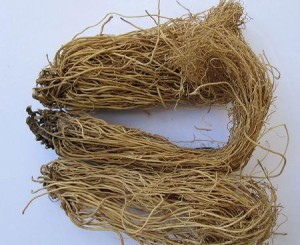Asarum is a plant. The root is used to make medicine.
Contents
Uses
Despite serious safety concerns, asarabacca is used for bronchitis, bronchial spasms, and bronchial asthma. It is also used to treat coughs, pneumonia, chest pain (angina),migraines, liver disease, and dehydration. Some people use it to cause vomiting. Women use it to start their menstrual periods and cause an abortion.
Benefits
1) Its volatile oil, water and alcohol extract are antipyretic, anti-inflammatory, sedative, and anticonvulsant. And they are used as local anaesthetic too;
2) Large doses of its volatile oil can excite and then suppress the central nervous system, showing some toxic and side effect;
3) In vitro tests show that it inhibits hemolytic streptococcus, Shigella and aflatoxin;
4) The alcohol infusion of Asarum sieboldii Miq. can resist morphine-induced respiratory depression. The higenamine contained can strengthen the heart, dilate blood vessels, relax smooth muscle, enhance lipid metabolism, elevate blood sugar, and so on;
5) The safrole contained is a toxic carcinogen, which can be easily damaged by high heat.
Caution
Asarum is POSSIBLY SAFE when taken by mouth short-term, as long as it isn’t contaminated with a chemical called aristolochic acid.
Asarum that is not contaminated with aristolochic acid is POSSIBLY UNSAFE when taken by mouth in large amounts or for longer durations. Large amount of Asarum, even if it is free from contamination, may cause nausea, vomiting, burning of the tongue, diarrhea, rash, and paralysis.
Asarum is UNSAFE when taken by mouth for any length of time if it’s contaminated with the chemical aristolochic acid. This chemical can damage the kidney or causecancer.
Special Precautions & Warnings:
Pregnancy and breast-feeding: It is LIKELY UNSAFE to take Asarum if you are pregnant. It might start your period or cause the uterus to contract. These effects might cause a miscarriage. Avoid use.
Not enough is known about what effects Asarum might have on a nursinginfant if taken while breast-feeding. Stay on the safe side and avoid use.
Stomach or intestinal (gastrointestinal, GI) problems: Asarum can irritate the GI tract. Don’t use it if you have ulcers, inflammatory bowel disease, or Crohn’s disease.
Interactions
None are recorded.
Other names
Asara, Asarabácara, Asaret du Caucase, Asaret d’Europe, Asari Herba, Asari Herba cum Radice, Ásaro Europeo, Asaroun, Asarum, Asarum europeaum, Azarum, Cabaret, False Coltsfoot, Gingembre Rouge, Gingembre Sauvage, Hazelwort, Nard Sauvage, Oreille d’Homme, Public House Plant, Rondelle, Snakeroot, Wild Ginger, Wild Nard
Reference
Source: WebMD, http://www.webmd.com/vitamins-supplements/ingredientmono-861-asarum.aspx?activeingredientid=861&activeingredientname=asarum

